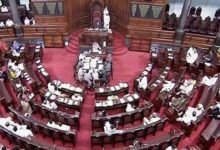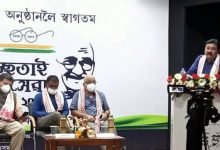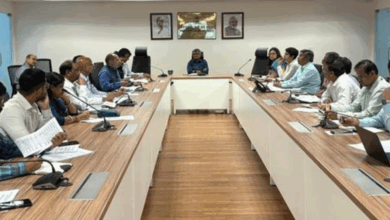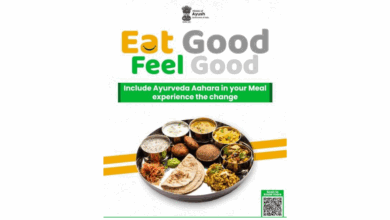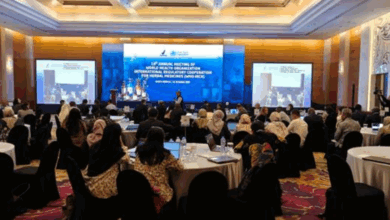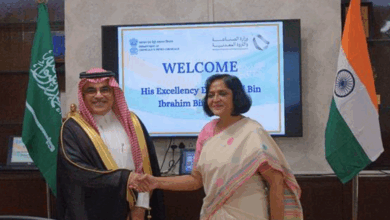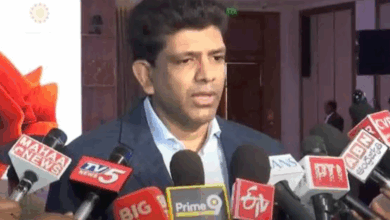Community Engagement Is Key To Achieve ‘Har Ghar Jal’ By 2024: AS & MD, Jal Jeevan Mission, Sh. Bharat Lal
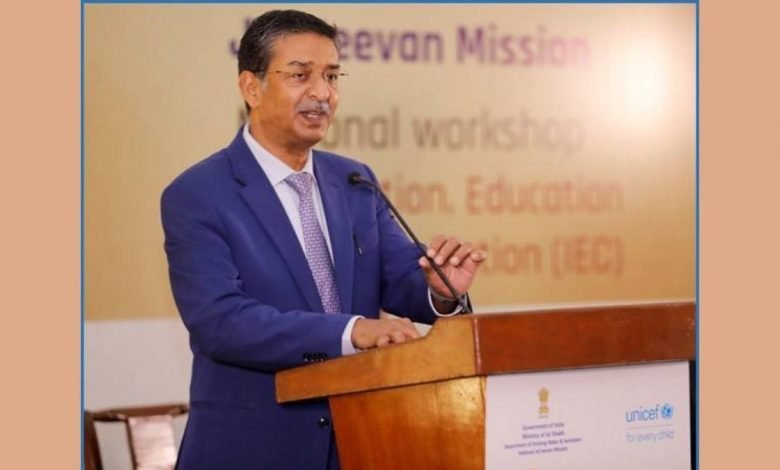
National Workshop On IEC Held As A Part Of Jal Jeevan Samvad
A day-long national workshop on Information, Education & Communication (IEC) was held on 9th December, 2021to deliberate on the importance of community engagement in Jal Jeevan Mission which aims to bring ‘ease of living to the people especially women and children living in villages. More than 70 participants from States/ UTs including WSSO Directors, Chief Engineers and IEC-in charges participated in the workshop held as a part of ongoing Jal Jeevan Samvad.
Additional Secretary & Mission Director, National Jal Jeevan Mission, Shri Bharat Lal delivering the keynote address emphasized the need for planning. “We need to understand the criticality of community engagement in planning, implementing, management, operation and maintenance in-village water resources, water supply and surveillance management system. We need to strengthen the PaniSamitis and build the capacity of various stakeholders. Our success will be measured by ensuring long-term, regular and clean tap water supply to every household. We need to commit ourselves to improve the lives of people living in villages.”
Shri R. K. Sama, former Project Director WASMO Gujarat, spoke about the achievements of WASMO in Gujarat and the role of WSSO in Jal Jeevan Mission. During his interaction with the participants said, “it is important to engage with all the stakeholders. Women are the primary stakeholders. Ensuring them with water at home improves their health, provides better hygiene, saves times and ends drudgery.”
Shri Akshay Rout, former DG, Special Projects, Swachh Bharat Mission spoke on the effective use of different media to engage with the public. He said, “to communicate with people we have to address their minds. It is important that women and children are involved to bring about behaviour change.”
Vikram Chandra, founder, Editorji Technologies shared his thoughts on media outreach. He said, “Good stories happening on the ground need to reach the relevant people. It is important that the huge work happening under Jal Jeevan Mission should reach to everyone to bring about behaviour change.”
Nicolas Osbert, Chief, WASH, UNICEF India spoke about the importance of communication and the role of youth to take the Jal Jeevan Mission saved to every village in India. Shri Pradip Singh and Shri P. Vishwakannan, Directors, NJJM discussed the technological interventions, transparency and accountability in Jal Jeevan Mission, and the need to build the capacity of stakeholders and the role of Key Resource Centres (KRCs) and Implementation Support Agencies in making the country ‘Har Ghar Jal’ by 2024. Shri Liby T. Johnson of Gram Vikas, Odisha and experts from UNICEF discussed various other aspects and themes of IEC in Jal Jeevan Mission with the participants and shared their experiences.
Announced by Prime Minister Shri Narendra Modi on 15th August 2019, Jal Jeevan Mission is implemented in a decentralized manner following the ‘bottom-up’ approach, wherein the local village community plays a key role starting from planning to implementation and from management to operation and maintenance. To achieve this, the State undertakes activities like strengthening the PaniSamiti and developing Village Action Plan in the Gram Sabha wherein the community deliberates on water concerns affecting their daily lives.
Village Action Plans (VAPs) have the components of drinking water source strengthening/ augmentation, water supply infrastructure, greywater treatment & reuse, and operation & maintenance of in-village water supply system. The mission mandates that half of the members of VWSC/ PaniSamiti are women, thus encouraging women to participate in these discussions being the primary water managers in any household. The States are organizing intensive training and skilling programmes, especially on water quality surveillance to 5 persons mostly women in every village and local persons as masons, plumbers, electricians, motor mechanics, fitter and pump operators.
Workshop Deliberateson Developing Responsible & Responsive Leadership At Grassroot Level And WASH Enlightened Villages
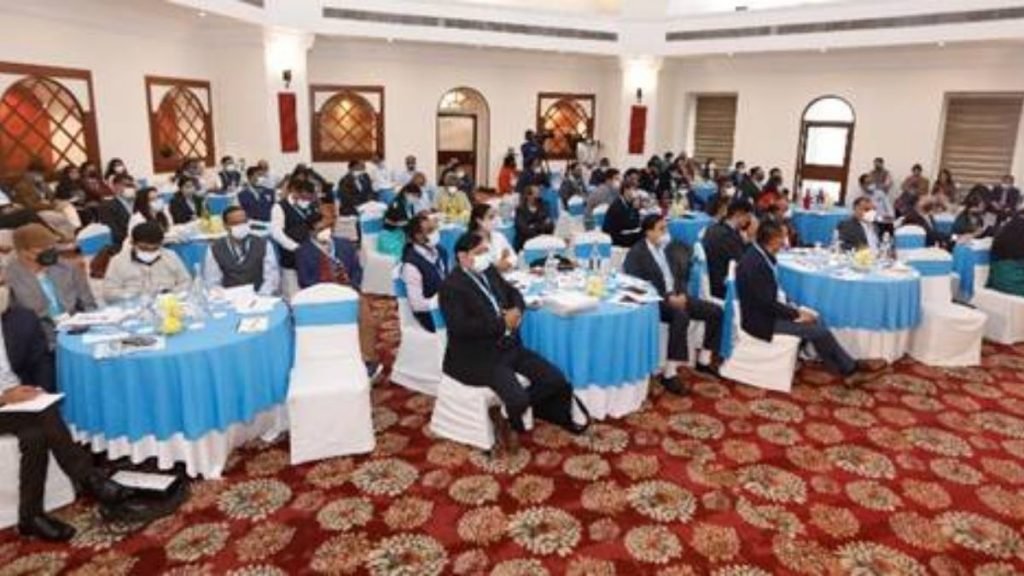
With Government’s focus on water supply and improved sanitation, the 15th Finance Commission allocated Rs. 26,940 Crore tied grants to RLBs/ PRIs in 2021-22 for the supply of drinking water, rainwater harvesting and water recycling, and sanitation and maintenance of ODF status. There is an assured fund of Rs. 1.42 lakh Crore for the next 5 years from 2021-22 to 2025-26. This will supplement the ongoing efforts under JJM. All-out efforts are to be made for judicious use of this grant by rural local bodies by focusing on activities viz. rainwater harvesting, strengthening of drinking water sources, improving water supply, greywater management and regular operation & maintenance.
A sensor-based IoT system is being installed to measure the quantity, quality, pressure, and regularity of water supply in the village. Jal Jeevan Mission Dashboard which is in the public domain https://ejalshakti.gov.in/jjmreport/JJMIndia.aspx provides information down to village-level. The focus under mission is to ensure tap water supply to all rural households as well as every school, AWCs, PHCs, CHCs, community centres, etc.
At the start of the mission in 2019, out of 19.20 Crore rural households in the country, only 3.23 Crore (17%) had tap water supply. Despite challenges faced due to the COVID-19 pandemic and subsequent lockdowns, over 5.40 Crore (28%) households have been provided with a tap water supply since the launch of the mission. Presently, 8.63 Crore (45%) rural households receive a tap water supply. Goa, Telangana, Andaman & Nicobar Islands, Dadra & Nagar Haveli and Daman & Diu, Puducherry and Haryana have become ‘Har Ghar Jal’ i.e., tap water supply has been provided to all rural households in these States/ UTs.
The tap water supply to JE-AES affected districts has gone up from 8 lakh (3%) to 1.19 Crore (39%) and in aspirational districts, it has gone from 24 lakh (7%) to 1.28 Crore (38%). JJM is removing the drudgery faced in fetching water by women and children for centuries and changing the lives of Crores of people in rural India.
Efforts have been made to ensure tap water supply for drinking, cooking mid-day meals, washing hands and usage in toilets in all schools and Anganwadi centres. As of date, 8.30 lakh (81%) schools and 8.73 lakh (78%) AWCs in the country have been provided with a tap water supply. Following the Prime Minister’s vision of ‘SabkaSaath, SabkaVikas, SabkaVishwas, SabkaPrayas’, the motto of the mission is that ‘no one is left out and every rural household is provided with tap water connection. At present, every household in 83 districts and more than 1.27 lakh villages are receiving a tap water supply.
Disclaimer : This is an official press release by PIB.

